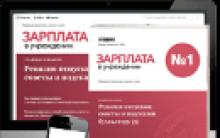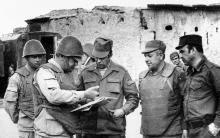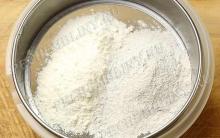The work of a doctor is difficult, and not only from the point of view of knowledge and practical experience, but also from the point of view of perception. If you constantly have to see seriously ill, dying people, how can you look at it calmly? How can you sleep peacefully after this? How much kindness and empathy should be in the heart of a true doctor? This is why books about doctors are so popular. And the book “The Surgeon’s Heart” was written by Fyodor Uglov back in the 20th century, when there were no such detailed stories about medical practice as there are now.
The author of this book devoted almost his entire life to medicine. First, he talks about the difficult path he had to go through to become an outstanding surgeon. A boy from a simple family living in Siberia was able to become first a student at a medical university, and then an academician and professor in the field of surgery. He talks about his practice, and everything he says is true. He had to go through a lot during the difficult Soviet times. With his story, he takes him back in time, to the setting of besieged Leningrad, when he began working in a hospital.
The book describes severe cases, incomprehensible diagnoses and symptoms of patients, and the conclusions made by Fedor Uglov. Even then, he thought about the fact that some diseases can be caused by a person’s emotional state; now this is called psychosomatics. He shares his thoughts and experiences, and it becomes clear how kind and compassionate this man was. You admire him and have great respect for him as a person and a professional. And this is in addition to the general pleasure of an informative and captivatingly written book.
The work belongs to the Prose genre. It was published in 1974 by AST Publishing House. The book is part of the "Medical Bestseller" series. On our website you can download the book "The Surgeon's Heart" in fb2, rtf, epub, pdf, txt format or read online. The book's rating is 4.58 out of 5. Here, before reading, you can also turn to reviews from readers who are already familiar with the book and find out their opinion. In our partner’s online store you can buy and read the book in paper version.
The heart of a surgeon Fedor Uglov
(No ratings yet)
 Title: The Surgeon's Heart
Title: The Surgeon's Heart
About the book “The Surgeon’s Heart” by Fedor Uglov
Fedor Uglov is an outstanding surgeon, public figure and writer. He performed successful operations when he was 100 years old. He was included in the Guinness Book of Records for a number of unique operations that his contemporaries did not dare to repeat. During his life he saved a huge number of people. F. Uglov always followed a healthy lifestyle, never drank alcohol or smoked. He constantly spoke about the harmful effects of alcoholic beverages and tobacco in his articles and books. F. Uglov is the owner of countless prizes and awards. His books inspire the younger generation of doctors to new achievements and honest service to society. “The Surgeon’s Heart” is one of the significant works of F. Uglov. It is biographical, and fans of the surgeon have re-read it more than once and admired the writing skills.
Fedor Uglov describes his life in his book “The Surgeon’s Heart”. The work tells about the beginning of the career of the great surgeon, the patients he had to treat. The author does not hesitate to admit that at first it was difficult for him, but later he was able to pull himself together and learn to come to terms with many problems that arose in the course of his work. It may seem to some that he has become deaf to the pain of others, but this is not so. Faced with another difficult problem, the surgeon tried to solve it in such a way that the person would suffer less and recover faster. Perhaps sometimes his actions were tough, but he simply could not do otherwise, since a person’s life was at stake. This was precisely what was most important for him.
In “The Heart of a Surgeon,” the author recalls his childhood, the period of struggle with fists, commitment to Soviet power, and the war years. F. Uglov worked in besieged Leningrad. According to him, it was a miracle that he survived. In those years, he was a surgeon in a hospital and was able to survive because he took samples from food prepared for the sick. If he did not have this privilege, then most likely the genius would not have lived 104 years.
Fedor Uglov, in his book “The Heart of a Surgeon,” shares with readers his memories of his activities. In the work you can find instructive and touching stories. They all open the veil that surrounded the great surgeon. His autobiographical work will help you understand the actions and understand the life's work of a person who dissolved in him without a trace.
On our website about books, you can download the site for free without registration or read online the book “The Surgeon’s Heart” by Fedor Uglov in epub, fb2, txt, rtf, pdf formats for iPad, iPhone, Android and Kindle. The book will give you a lot of pleasant moments and real pleasure from reading. You can buy the full version from our partner. Also, here you will find the latest news from the literary world, learn the biography of your favorite authors. For beginning writers, there is a separate section with useful tips and tricks, interesting articles, thanks to which you yourself can try your hand at literary crafts.
Download the book “The Surgeon’s Heart” for free by Fedor Uglov
(Fragment)
In format fb2: Download
In format rtf: Download
In format epub: Download
In format txt:
A book about how domestic surgery developed throughout the 20th century. The author is the most outstanding Soviet surgeon Fedor Uglov.
A little boy from a provincial town dreams of becoming a surgeon. And it becomes. So much so that soon the whole world will be talking about him! This is what happens when a person strives to fulfill his dream, studies and works tirelessly, reaching the highest peak of professionalism. A man who not only saved thousands of people, but also developed a whole system of longevity. It is no secret that Fedor Uglov was still operating at the age of 100 and died at 104.
For example, that just 50 years ago, most operations were performed under local anesthesia, even such as amputation. There were no anesthesiologists, so the surgeon was responsible for everything, including anesthesia.
The author believes that a surgeon must constantly improve himself. New discoveries, innovations, medicines - these are all the achievements of domestic doctors. Nowadays you won’t surprise anyone with such a procedure as a blood transfusion. But in the 30s it was a very complex experiment. Until they learned how to carry it out correctly, more than one patient said goodbye to life.
In the book “The Heart of a Surgeon,” Fyodor Uglov talks about his many years of work to save people’s lives. All new developments have come about thanks to terminally ill patients. Because they were waiting for salvation. He remembered each of them, and talks about many of them with love and respect in his work.
Undoubtedly, future doctors will find much useful in this work. In addition to describing innovative operations, the author expresses his opinion on the ethical side of the work of doctors. Are risky operations justified? Are the functions of the head physician more medical or economic? What causes a heart attack, maybe from rudeness? If a surgeon does not have compassion for his patients, maybe he has no place in medicine? You will find answers to all these questions and more when you start reading “The Surgeon’s Heart.”
On our literary website you can download Fyodor Uglov’s book “The Surgeon’s Heart” for free in formats suitable for different devices - epub, fb2, txt, rtf. Do you like to read books and always keep up with new releases? We have a large selection of books of various genres: classics, modern fiction, psychological literature and children's publications. In addition, we offer interesting and educational articles for aspiring writers and all those who want to learn how to write beautifully. Each of our visitors will be able to find something useful and exciting for themselves.
Fedor Uglov
Surgeon's heart
After a sleepless night spent at the bedside of a seriously ill patient whom I had operated on, I was returning home. It was easy to breathe, freely, and even though the sun had not yet risen and was hiding somewhere behind the tall buildings, it could be discerned in the play of golden reflections running across the window panes and across the thin morning ice of puddles on the asphalt.
It was joyful to see the cheerful, cheerful faces of passers-by - without weapons, without gas mask bags. The inscriptions on the walls of the buildings - with signs of the nearest bomb shelters, with a warning about the threat of artillery shelling - were already yesterday, they were fading, not being updated with paint as unnecessary, and with calm businesslike vans ran through the streets, marked with such everyday and such expensive words: “Bread”, “Products”, “Vegetables”...
How excited he was, post-siege Leningrad!
At the tram switch, an elderly woman in a canvas jacket, who looked like a factory worker or construction worker, was holding a sobbing girl by the shoulders, and she was struggling and repeating through her tears: “No, no, no!..”
I approached them and asked if they needed help - I’m a doctor...
- No one will help me, no one! – the girl shouted.
- Stupid! Crazy! I would lie down under a tram! “The woman swore and at the same time calmed the girl down, saying that now that we had overcome the war, we can correct any problem...
- Yes Yes! - I supported, although from the girl’s confused words, from her labored and peculiar breathing, I understood the hopelessness of her state of health and still said firmly: “Don’t do anything stupid, we will cure you!”
He gave the address of our clinic.
What did I hope for when I promised Olya Vinogradova, a stranger to me then, healing, deliverance from unbearable torment? To console her, to keep her from a rash act - this was, perhaps, her only desire. After all, we have not yet performed operations that could cure Olya, we were only feeling the way to them.
When the girl came to us the next day, we, having confirmed for ourselves the clinical seriousness of her illness, heard a bitter confession story...
What interest can there be in life when you greet a new day in fear? From month to month, from year to year...
The day before, Olya secured an appointment with the head of the therapeutic department of the district clinic.
The manager greeted me coldly. She understood that she could not help, and, probably, from the consciousness of her own powerlessness, she spoke sharply, with annoyance:
– There are no effective treatments for your disease. But we will prescribe everything that modern medicine has at its disposal...
“I feel bad,” Olya said, barely holding back tears. - It’s impossible - to rot alive and not know what to expect! I was on my way to see you, coughed on the tram - everyone immediately moved away from me. Such a smell! And here you are - I see - turning away... How to live?
“Be patient,” said the manager, “I repeat, you are being treated.”
- And I’m getting worse!
- What, are you hoping for a miracle?
The manager asked irritably and then, trying to soften her ruthless question, hastily added:
– Calm down, Vinogradova. Go to your local doctor - she will help, do everything in her power...
Olya returned home without seeing the road, not noticing neither the people she met, nor the ringing drops of spring, nor the blue sky that seemed to have widened from this blueness. She is twenty-two years old, and there is emptiness around her. Damn disease! It kills not only the organism; she killed all former hopes, dreams - about college, happy days filled with work, relaxation, when you can go to the theater or with a group of friends go out of town, into the forest... But that’s all! How diverse and meaningful life is... for others, but not for her! Only Nadya, beloved sister, comforter, is nearby...
But why is retribution so unfairly heavy for moments of long-standing frivolity?!
...A bright, sunny day in late autumn. Olya returned from school, had lunch alone - her mother and sister were at work - and ran to her friend, two blocks away, on their own street. She ran lightly - in a raincoat, sandals, with her head uncovered. And brown leaves fell from the trees and fell under our feet.
They did homework with a friend; after Russian we took up mathematics: there were two difficult problems, the solution could not be given - we fiddled around until dusk. And then we got carried away with inventing hairstyles, looked in the mirror - which one would suit whom... It became completely dark, the wind rose outside, raindrops hit the window glass. Olya collected her textbooks and notebooks, and because of some stupid stubbornness, she did not ask her friend for something warm that would protect her from the rain and wind. She jumped out of the entrance and bravely rushed towards the bad weather.
At home, Olya, chilled and blue from the cold, was given hot tea and put to bed. But that night she developed a fever, the temperature rose to 40°, and by morning the girl fell into unconsciousness. The doctor recognized lobar pneumonia.
The disease was difficult. Only on the eighth day did Olya come to her senses, the temperature began to drop, although for another month it stubbornly remained at 37.4–37.5°. I had a cough. Neither the fever, nor the cough, nor the general malaise could bring down even the medications and injections that were effective at that time.
Still, Olya completed the school year successfully and moved to ninth grade. The wonderful summer with its invigorating warmth and joyful sense of freedom made me forget the recent dark days. But the summer flashed by quickly, and in the fall, during the time of cold rains, Olya, who knows how, caught a cold, went to bed again. There was an exacerbation of the pulmonary process with fever and coughing attacks.
Olya walked towards the desired matriculation certificate through bouts of illness. In hours of despair, she was supported by her dream: I would go to medical school, I would study in order to warn people from unexpected diseases... But all her plans and the well-established life of her family collapsed, intertwined with a formidable word: war! In the very first days, my father joined the people’s militia and died. During the harsh winter of the siege, the mother died of exhaustion, giving part of her half-starved rations to her, Olya. Practical, strong-willed Nadya somehow managed to get her sister a job as a heater in a military kitchen, and, most likely, it was only thanks to this that Olya survived the blockade.
Exacerbations of the disease increasingly put her to bed - for a long time. Faithful Nadya was nearby, eager, stretching with all her might - if only Olenka would feel better! But the disease progressed inexorably. The temperature was almost constantly elevated. Olya lay there, mindlessly looking at the ceiling, indifferent to everything around her.
One day, a ray of hope flashed through a message read in a medical journal. It turns out that with illnesses like hers, they still perform operations - they cut out the abscesses. True, the magazine wrote that after such operations, even successfully performed, the wounds often do not heal and remain open. And although it was scary to imagine herself on the operating table, Olya turned to the surgeon. He examined her carefully and, sighing, spread his hands: the operation she needed - alas! - They don’t do it in Leningrad. The ray of hope flashed instantly and went out just as quickly...
That day, when Olya was at the head of the department of the district clinic, she returned home and learned from a conversation she accidentally overheard: Nadya is only because of her not marrying her loved one, because of her she is sacrificing her happiness.
That’s when I met the desperate Olya at the tram switch. And this fatal incident became an impetus for me to accelerate a large, hitherto unknown work...
Purulent lung diseases, chronic pneumonia with bronchiectasis and abscess formation are perhaps the darkest page in the history of therapy and surgery. Therapeutic treatment gave only a short-term effect, and most patients died from intoxication and renal amyloidosis.
At that time (the second half of the forties), only a few surgeons dared to open abscesses or remove the rotted lung in parts. The mortality rate from such operations was high, and those who underwent surgery were often left with bronchial fistulas or wounds.
How many times during the war years did we stand with a bitter feeling of helplessness at the bedside of those wounded in the chest, not knowing how to help them. They required operations, the technique and nature of which were not clear to us. Therefore, already at the end of the war, and especially after it, we began to specifically study this problem, read a lot, and experimented.
From the fragmentary information that reached us, it was known that US surgeons had achieved some success in this area. Pieces of their experience were scattered across the pages of special magazines in English. It became clear: you can’t do without a good knowledge of the language. And I turned to Nadezhda Alekseevna Zhivkovich for help. With the limited time left for rest after work, I took lessons - twice a week for one and a half to two hours. I forced myself to read literature, including fiction, only in English, with a dictionary, of course; I wrote out almost every word in a notebook, especially at first.











You need to confess before the unction
Old Believer burning as a phenomenon
Sign of the Cross - three and two fingers - saints - history - catalog of articles - unconditional love
How to get to the nunnery?
Is it possible to wear things after a deceased person: the opinion of a priest and a psychic